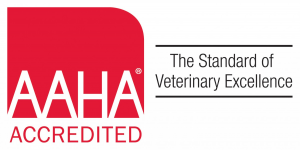-
Bucked Shins
Category: Equine, Pet Health, Orthopedics
Bucked shins is the common name for very small fractures on the front part (periosteum) of a horse’s cannon bones. These bones are on the lower part of the leg, and run between the knee and the fetlock joint below. Symptoms of Bucked Shins Bucked shins are more common in 2- to 3-year-old Thoroughbreds
Read more -
Angular Limb Deformities
Category: Equine, Pet Health, Orthopedics
Many young foals have crooked hind or front legs. Lax ligaments and weak muscles usually cause this discrepancy between legs, which is often self-correcting as the horse grows. However, this deviation makes the young horses more likely to crush the cuboidal bones during exercise. If this happens, once
Read more -
Arthritis in Horses
Category: Equine, Pet Health, Orthopedics
Arthritis is one of the most common conditions causing lameness in older horses; in fact, arthritis is responsible for up to 60 percent of all lameness. Arthritis can affect the knee, joint, fetlock, coffin and hock. Arthritis that affects the pastern is also known as “ringbone.” Arthritis is the
Read more -
Ringbone
Category: Equine, Pet Health, Orthopedics
Ringbone is a lameness condition that affects the pastern and coffin joints in horses. This is a degenerative disease that continues to worsen over time. The right treatment and ongoing management, though, can slow the progression of the condition. Types of Ringbone Ringbone causes an enlargement around
Read more -
Limb Conditions
Category: Equine, Pet Health, Orthopedics
Several disorders can affect the hindlimbs, forelimbs or hooves of horses. Some of these can lead to lameness or changes in gait. Hindlimb Conditions in Horses Stringhalt is a condition that causes the horse to jerk or hop, with the hind legs pulled up high before taking the next step. This results
Read more -
Ligament and Tendon Injuries
Category: Equine, Pet Health, Orthopedics
Ligaments and tendons are important parts of the musculoskeletal system, which also includes the muscles and bones. Together, all these components provide support for the body and enable the horse to move and exercise. Tendons are very tough bands of connective tissue that connect muscles to bone. Tendons
Read more -
Fractures
Category: Equine, Pet Health, Orthopedics
Fractures, or breaks, can potentially occur in any bone in a horse’s body. Some types of fractures, however, are more common, especially among very athletic horses, such as racehorses. Causes of Fractures Fractures fall into several categories: An incomplete fracture (also known a “green stick,”
Read more -
Orthopedic
Category: Feline, Pet Health, Orthopedics
Cats are curious beings, and that curiosity can lead to injuries that affect their ability to move effortlessly through their environment. Of course, injuries are not the only source that can cause musculoskeletal limitations; sometimes, congenital defects may be the cause of a musculoskeletal problem. Orthopedists
Read more -
Arthritis
Category: Pet Health, Orthopedics, Pet Health
The most common type of arthritis is osteoarthritis which can be due to wear and tear on joints from over use, aging, injury, or from an unstable joint such as which occurs with a ruptured ACL (anterior cruciate ligament) in the knee. The chronic form of this disease is called degenerative joint disease
Read more -
Ruptured Anterior Cruciate Ligament (ACL)
Category: Pet Health, Orthopedics
The rupture of the cruciate ligament is the most common knee injury in the dog. This injury has two common presentations. One is the young athletic dog playing roughly who acutely ruptures the ligament and is non-weight bearing on the affected hind leg. The second presentation is the older, overweight
Read more -
Luxating Patella
Category: Pet Health, Orthopedics
Luxating patella is a condition where the kneecap (patella) moves out of its normal position. Luxating patella is one of the most common knee joint abnormalities of dogs, but it is only occasionally seen in cats. It may affect one or both of the knees. In some cases it moves (luxates) towards the inside
Read more -
Hip Dysplasia
Category: Pet Health, Orthopedics
Hip dysplasia is a congenital disease that, in its more severe form, can eventually cause lameness and painful arthritis of the joints. It is caused by a combination of genetic and environmental factors. It can be found in many animals and, rarely, humans, but is common in many dog breeds, particularly
Read more
Location
Find us on the map
Office Hours
Our Regular Schedule
Monday:
8:00 am-12:00 pm
2:00 pm-5:00 pm
Tuesday:
8:00 am-12:00 pm
2:00 pm-5:00 pm
Wednesday:
8:00 am-12:00 pm
2:00 pm-5:00 pm
Thursday:
8:00 am-12:00 pm
2:00 pm-5:00 pm
Friday:
8:00 am-12:00 pm
2:00 pm-5:00 pm
Saturday:
8:00 am-1:30 pm
Sunday:
Closed


